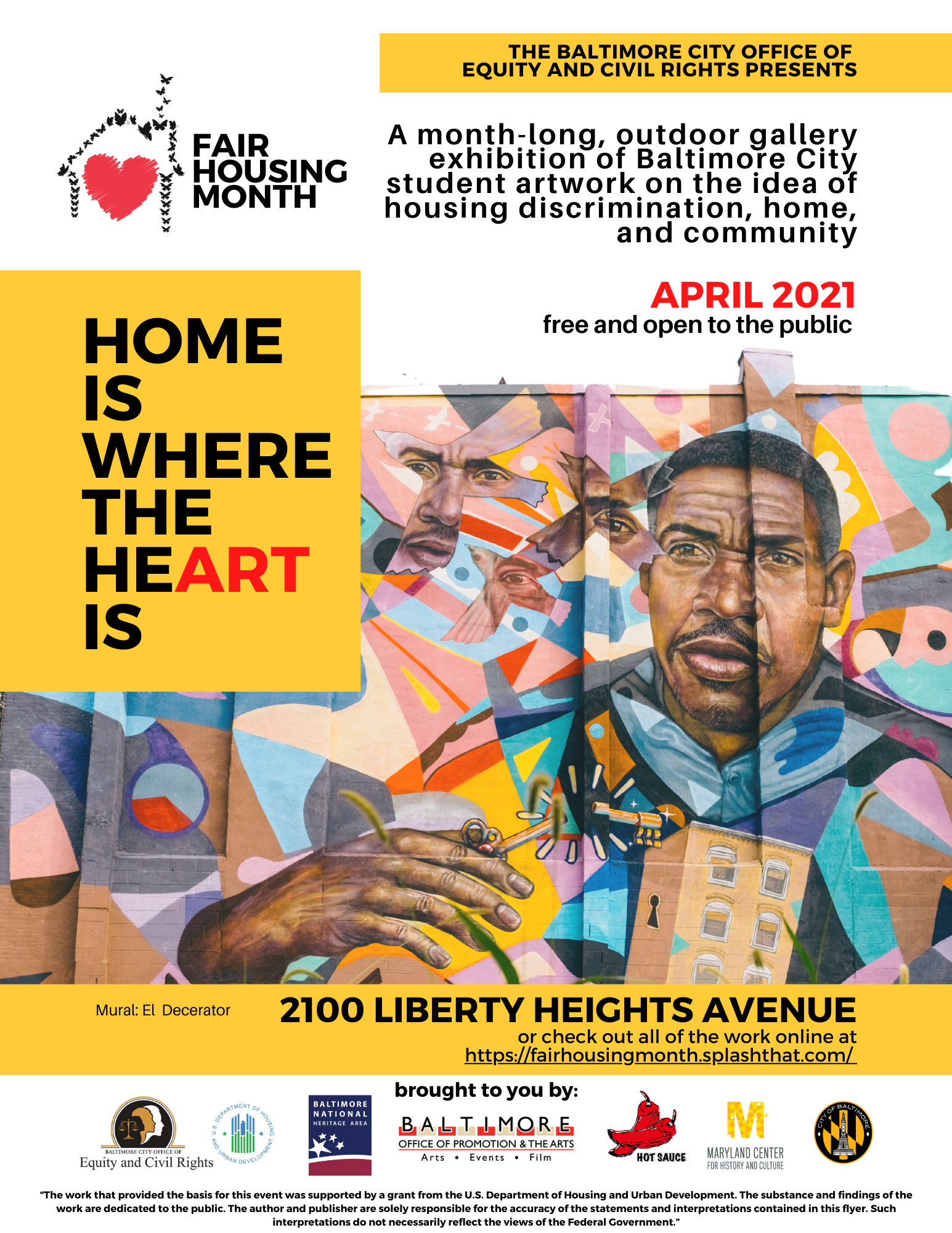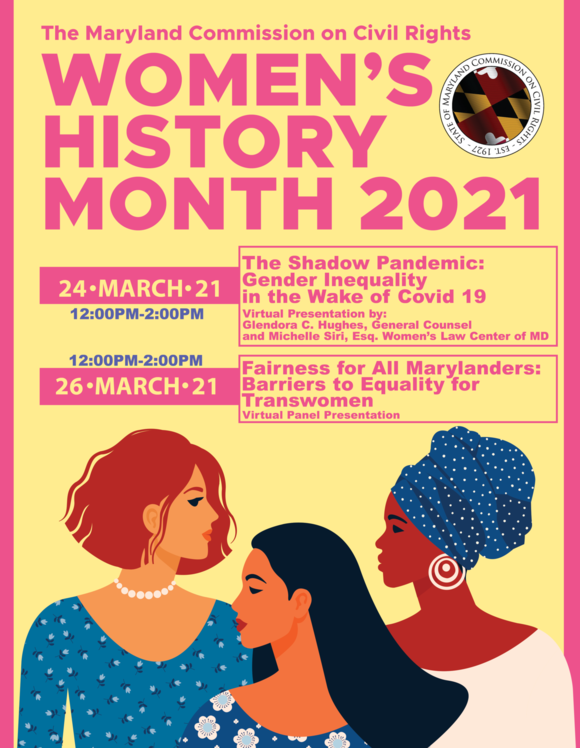A SHORT HISTORY
OF
NATIONAL FAIR HOUSING MONTH
Prepared by the GBCHRB, 2021.
What is It?
National Fair Housing Month celebrates the passage of The Fair Housing Act of 1968, which
prohibited discrimination based on race, color, religion, sex, national origin, disability, and
familial status in the sale or rental of housing. This Act was subsequently amended and revised
by legislation in 1974 and 1988 to produce what is in 2010 the Fair Housing Law of the United
States. The most recent change in the law was HUD's February 11, 2021 announcement that it would enforce discrimination based on sexual orientation and gender identity
Historical Background
From 1966-1967, Congress regularly considered the Fair Housing bill, but
failed to garner a strong enough majority for its passage. However, when
the Rev. Dr. Martin Luther King, Jr. was assassinated on April 4, 1968,
President Lyndon Johnson utilized this national tragedy to urge for the bill's speedy
Congressional approval. Since the 1966 open housing marches in Chicago, Dr. King's name had
been closely associated with the Fair Housing legislation. President Johnson viewed the Act as a
fitting memorial to the man's life work, and wished to have the Act passed prior to Dr. King's
funeral in Atlanta.
Another significant issue during this time period was the growing casualty list from Vietnam.
The deaths in Vietnam fell heaviest upon young, poor African-American and Hispanic
infantrymen. However, on the home front, these men's families could not purchase or rent
homes in certain residential developments on account of their race or national origin.
Passage of the Act
Specialized organizations like the NAACP, the GI Forum, and the National
Committee Against Discrimination In Housing lobbied hard for the Senate to
pass the Fair Housing Act and remedy this inequity. Senators Edward Brooke
and Edward Kennedy of Massachusetts strongly lobbied for the passage of this
legislation. Senator Brooke, the first African-American ever to be elected to
the Senate by popular vote, spoke personally of his return from World War II
and inability to provide a home of his choice for his new family because of his
race.
Legally, the Act was a follow-up to the Civil Rights Act of 1964. The 1968 Act expanded on
previous acts and prohibited discrimination concerning the sale, rental, and financing of housing
based on race, religion, national origin, sex, (and as amended) handicap and family status. Title
VIII of the Act is also known as the Fair Housing Act (of 1968).
The Act could never have been passed without both the strong leadership of President Lyndon B.
Johnson and the creation of bi-partisan support in the Senate. The Majority Whip Senator
Hubert H. Humphrey (D-Minnesota) and the Minority Leader Senator Everett McK. Dirksen (R-Illinois) were instrumental in forging a compromise that led to passage.
Creation of HUD
To aid community development and enforce the Fair Housing Law, the U. S.
Department of Housing and Urban Development (HUD) was created. The
department was established on September 9, 1965, when President Lyndon B.
Johnson signed the Department of Housing and Urban Development Act into
law. It stipulated that the department was to be created no later than November
8, sixty days following the date of enactment. The actual implementation was
postponed until January 13, 1966, following the completion of a special study
group report on the federal role in solving urban problems (Wikipedia, 2010).
President Nixon tapped then Governor of Michigan, George Romney (Mitt's father), for the post
of Secretary of Housing and Urban Development. While serving as Governor, Secretary
Romney had successfully campaigned for ratification of a state constitutional provision that
prohibited discrimination in housing. President Nixon also appointed Samuel Simmons as the
first Assistant Secretary for Equal Housing Opportunity.
Fair Housing laws now are enforced by a combination of federal, state, local, and nonprofit
agencies and organizations.
Celebration of the Act
HUD initially held a gala event marking the first year of the Act's passage.
The tradition of celebrating Fair Housing Month has grown larger and larger.
Governors began to issue proclamations that designated April as "Fair Housing
Month," and schools across the country sponsored poster and essay contests
that focused upon fair housing issues. Regional winners from these contests
often enjoyed trips to Washington, D. C., for events with HUD and their
Congressional representatives.
Under former Secretaries James T. Lynn and Carla Hills, with the cooperation of the National
Association of Homebuilders, National Association of Realtors, and the American Advertising
Council, these groups adopted fair housing as their theme and provided free billboard space
throughout the nation. Every HUD administrative region across the country also has its own
celebrations, meetings, dinners, contests and radio-television shows that featured HUD, state and
private fair housing experts and officials.
In Maryland
In Maryland, Fair Housing Month also celebrates the passage
of Article 49-B of the Annotated Code of Maryland prohibiting
discrimination in the sale or rental of housing. The Governor
traditionally issues a Proclamation declaring April as Fair
Housing Month in the State, and various celebrations are held.
The HUD Baltimore Office, several governmental agencies, nonprofit organizations, and private
groups - including the GBCHRB - hold various events and webinars in connection with Fair Housing Month. Everyone is
invited to attend these free events.
For More Information
Maryland
Baltimore City Office of Equity & Civil Rights Fair Housing Month Film Festival. For any questions, contact Lauren Jackson in the Office of Equity and Civil Rights: Lauren.Jackson@BaltimoreCity.gov.
National Fair Housing Alliance, “Seven Days - History of the Fair Housing Act”
Maryland Center for History and Culture, “Housing Discrimination"
The 2021 Fair Housing Month Exhibition Student Artwork Call for Entry seeks student art from Elementary School, Middle School, and High School students in Baltimore City for the 2021 Fair Housing Month Student Exhibition in April 2021. Students are encouraged to create artwork based on home, community, and housing discrimination. The exhibition will be a dynamic curated outdoor art event installed in the Parks and People Foundation location at 2100 Liberty Heights Avenue, Baltimore, MD, 21217 from Thursday, April 1, until Saturday, May 1, 2021. The deadline for submissions is Monday, March 1, 2021. Submit Your Artwork here!
National
US Department of HUD - The Department's main website.
HUD Fair Housing & Equal Opportunity National Office - For information about Fair Housing and Fair Housing Month.
2021 HUD Fair Housing Month 2021 Outreach Materials - A variety of materials free to download including posters, guides, PSAs, and others.
File with HUD a Complaint of Housing Discrimination - Description and form for filing a complaint.
Housing Discrimination Under the Fair Housing Act - Describes the various parts of the Law.













